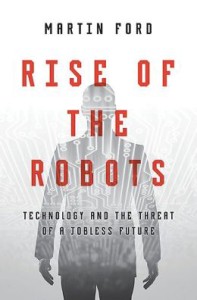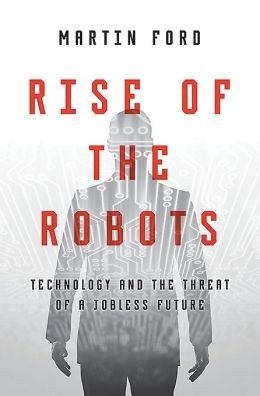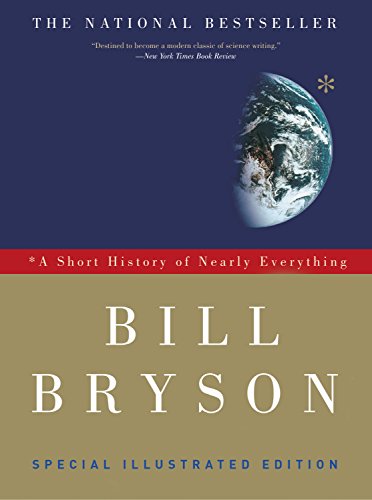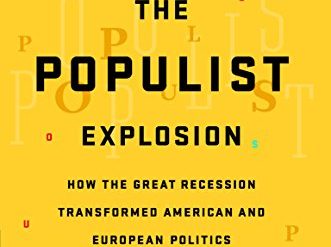
Warren Buffett, who ought to know, recently told shareholders of his investment company, Berkshire-Hathaway, that the development of driverless cars poses a “real threat” to the insurance industry. Buffett cares a lot about insurance, because he’s got billions invested in it. But he might have broadened his concern to encompass the entire economy. Because the emerging application of robotics poses a “real threat” to the future wellbeing of our country and the world. In Rise of the Robots, Silicon Valley software developer Martin Ford lays out the case for that claim in a balanced and temperate way about a jobless future that’s all the scarier as a result.
If you’re tempted to think that this threat will emerge only in the distant future, think again. Take a look, for example, at a May 22, 2015, article written by the brilliant New York Times technology reporter John Markoff. Markoff explains how research at the University of California, Berkeley, is speeding up the development of robotics at an unexpectedly rapid rate. “Roboticists said that the value of the Berkeley technology would be in quickly training robots for new tasks and ultimately in developing machines that learn independently,” Markoff writes. “Machines that learn” represent the Holy Grail of robotics.
Rise of the Robots: Technology and the Threat of a Jobless Future by Martin Ford ★★★★★
However, on a contrary note, Markoff explains in a later article in the Times, “A Reality Check for A. I.,” “that nobody needs to worry about a Terminator creating havoc anytime soon.” The article cites the growing consensus among roboticists that machine-human collaboration is far more likely to yield results than a stubborn focus on autonomous, multi-purpose machines.
With repeated references to science fiction as fantasy in contrast with today’s emerging reality in artificial intelligence (AI), Ford cites advanced work in the field now underway both in academia and in companies such as Google. His treatment of the subject is as thorough, detailed, and well-researched as might be expected of the most experienced technology reporter. Rise of the Robots is a solid piece of work and should be taken seriously by policy-makers and technologists alike.
The “jobless future” of Ford’s subtitle is already well underway. As evidence, Ford cites a recent report from the US Bureau of Labor Statistics: “In 1998, workers in the US business sector put in a total of 194 billion hours of labor. A decade and a half later, in 2013, the value of the goods and services produced by American companies had grown by about $3.5 trillion after adjusting for inflation — a 42 percent increase in output. The total amount of human labor required to accomplish that was . . . 194 billion hours . . . despite the fact that the US population gained over 40 million people during that time.”
Concern rooted in our fear of automation
Two decades ago the social commentator Jeremy Rifkin wrote a controversial book titled The End of Work: The Decline of the Global Labor Force and the Dawn of the Post-Market Era. Rifkin foreshadowed Ford in predicting that the ultimate impact of automation would be the loss of millions of jobs. In response, he advocated steering jobless workers into rewarding volunteer positions in healthcare, eldercare, the arts, and other fields to remake society in a more humane manner and redefine the role of the individual. Ford’s prescription for the treatment of this emerging disease is far more detailed and more believable, beginning with a guaranteed minimum income, negative income tax, or some other configuration of tax policy to ensure that no one would go hungry or homeless in a world with paid employment for only a favored few.
Rise of the Robots examines the increasing impact of automation not just in displacing unskilled or low-skilled workers but in hollowing out the middle class, putting such well-paid professionals as radiologists and lawyers out of work — a development that is well underway today. However, Ford makes clear that outsourcing to India, the Philippines, and other developing countries is only the first phase of the phenomenon: the repetitive work that has fled overseas will soon be shifted to machines instead, putting Indian and Philippine professionals out of work as well.
For more great reading
This is one of the books I’ve included in my posts, Gaining a global perspective on the world around us and 10 best books about innovation.
It’s also one of Two dozen good books about artificial intelligence and of 20 good books about the future.
You might also enjoy Science explained in 10 excellent popular books.
If you enjoy reading nonfiction in general, you might also enjoy:
- Great biographies I’ve reviewed: my 10 favorites
- My 10 favorite books about business history
- 20 top nonfiction books about history
- The 10 most memorable nonfiction books of the decade.
And you can always find my most popular reviews, and the most recent ones, on the Home Page.


























